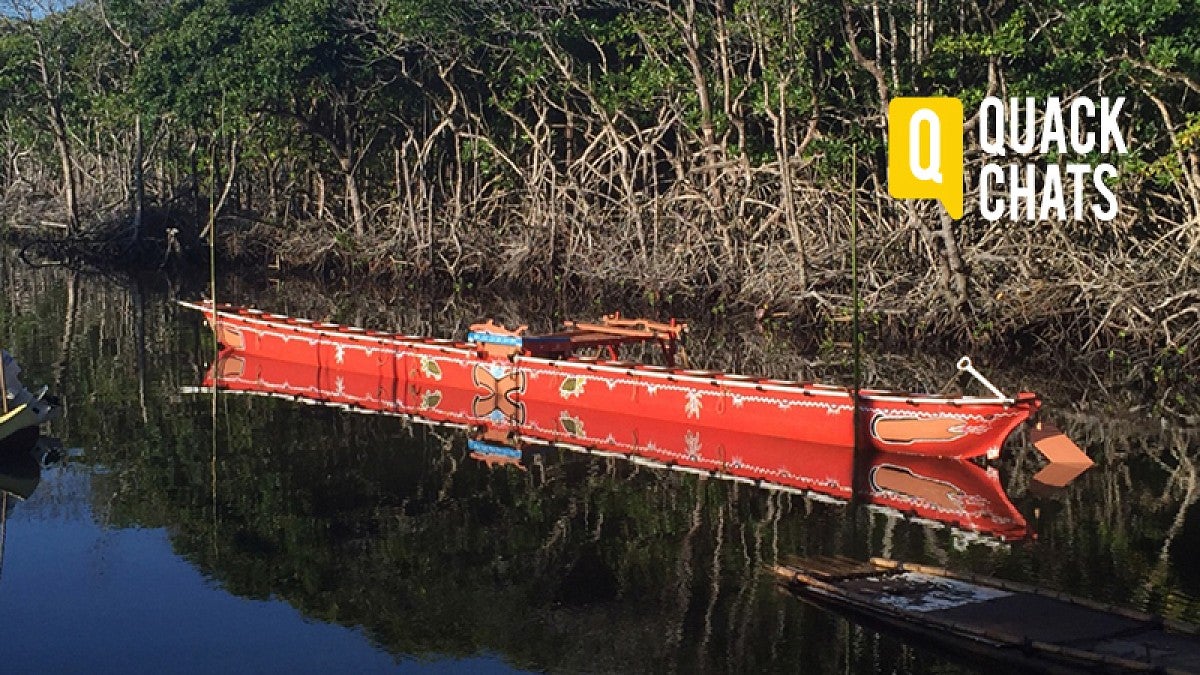Artwork, poetry and philosophical musings have all helped capture the lure of the sea. What would it have been like thousands of years ago to stand on a beach, look out over the ocean and dream of traveling to nearby islands and beyond the horizon?
In the UO’s next Quack Chats pub talk, guest speaker Scott Fitzpatrick won’t directly address that question, but he’ll steer the boat on a discussion of how the earliest seafarers took advantage of climate, winds and currents to journey into the unknown and colonize remote islands. He’ll also explore social reasons behind such migrations.
Fitzpatrick, a professor in the Department of Anthropology and associate director of the UO Museum of Natural and Cultural History, will speak on “Winds, Currents and History: How the Ocean Influenced the Age of Discovery” at 6 p.m., Wednesday, Jan. 10 at the Ax Billy Grill & Sports Bar, at the Downtown Athletic Club, 999 Willamette St. in Eugene. Admission is free. Food and drinks will be available for purchase.
Fitzpatrick has been conducting research for some 20 years at archaeological sites on islands across Oceania, exploring how early Pacific populations migrated and settled remote locations, and in the Caribbean Sea, where he has studied seafaring by indigenous populations and early European travelers.
The travels of these seafarers, he said, “dramatically changed the scope of human history in ways that we are only now beginning to understand.”
Why is it, he said, that there is no evidence for the use of the sail in the settling of many Caribbean islands? Yet, in the Pacific, North Atlantic and Mediterranean the sail was needed, he added.
“Winds and currents played a major role in how island regions were settled,” Fitzpatrick said. “These environmental factors have been pivotal in the kinds of seafaring strategies, like the kinds of watercraft, these early seafarers built. Necessity was the mother of invention.
His research on the colonization of Pacific islands by early Polynesian seafarers drew international coverage and was covered in a UO story “Study finds climate helped guide early Pacific seafarers.”
The voyage across the Pacific by Spanish explorer Ferdinand Magellan was probably made possible by the calming effects of an El Nino cycle in 1520, according to research led by Fitzpatrick while he was at North Carolina State University.
“The world as we see it, in terms of colonization of islands and early European contact, was basically structured by winds and currents, and how people adapted to those,” said Fitzpatrick, a founding co-editor of the Journal of Island & Coastal Archaeology and associate editor of the journal Archaeology in Oceania.
To learn more about upcoming Quack Chats, see the Quack Chats section on Around the O. A general description of Quack Chats and a calendar of additional Quack Chats and associated public events also can be found on the UO’s Quack Chats website.
—By Jim Barlow, University Communications


